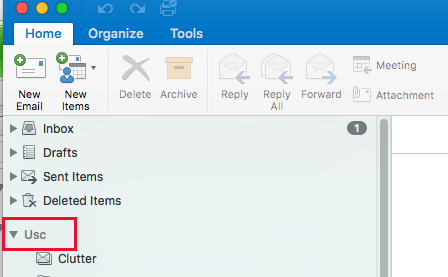
- MICROSOFT OFFICE PERSONAL FOLDERS HOW TO
- MICROSOFT OFFICE PERSONAL FOLDERS UPDATE
- MICROSOFT OFFICE PERSONAL FOLDERS WINDOWS 10
MICROSOFT OFFICE PERSONAL FOLDERS UPDATE
Then you need to double click on the reg file to update the registry! Old Method to move PST filesįind the current location of the PST by looking at the properties for Personal Folders in File, Account Settings. reg extension (or change the extension to reg after saving). Remember: you need to edit the path name, the save it using the.

"ForcePSTPath"="C:\\folder\\folder\\folder\\folder\\folder" (Use single slashes if you edit the registry directly.) Remember to use double \\ between folder names in the path in the reg file. If it does not exist, Outlook will drop back to the default Microsoft\Outlook location under the user account (and in Outlook 2010 and up, to My Documents\Outlook files for POP3 and additional pst files.) If you don't want to edit the registry directly, you can use one of these text files - you need to edit the path before changing the file extension to reg and double clicking on it to run it.īe sure the path exists before adding the key to the registry. Existing data files would need to be moved. Newly created data files will default to the location. If Outlook is open, close it then restart.

String Value: ForcePSTPath with your desired data path as the value dataĬlick OK and edit the registry editor. Right click on the key and choose New then click String Value. The ForcePSTPath key will cause Outlook to recreate the pst files used by IMAP accounts in Outlook 2010 and up but not in earlier versions. This key also changes the default location used for IMAP *ost files in Outlook 2013 and newer. Remember to create the folder you want to store the IMAP pst files in before you set the key. It works only for accounts created after the key is set. Note: This does not change the path for existing accounts. You need to set this key before you create this profile when you use an older version of Outlook, or before you add the account to the profile if you have Outlook 2013 and newer. You can change the default folder location Outlook looks to using the ForcePSTPath registry key. Open the Mail dialog in Control panel, click Profiles and double click on the desired Profile, then click Data Files. If you have multiple Outlook profiles, you'll need to select the correct profile.

MICROSOFT OFFICE PERSONAL FOLDERS WINDOWS 10
I'm using Outlook 2016 and Windows 10 but the steps are similar for Outlook 2007 and newer and Windows 7 and newer.
MICROSOFT OFFICE PERSONAL FOLDERS HOW TO
This video tutorial shows how to move a pst file.
The PST files used by POP3 accounts can be renamed. Select the account and click Open File Location to open the folder containing the PST in Windows Explorer.Open the profile ( Control panel, search for Mail) and click on Data files.This method can be used for POP3 or IMAP accounts, as well as SharePoint and Subscribed Calendar data files.įirst, close Outlook then make sure Outlook is not listed in Task Manager, Processes tab a few minutes after you close it.


 0 kommentar(er)
0 kommentar(er)
